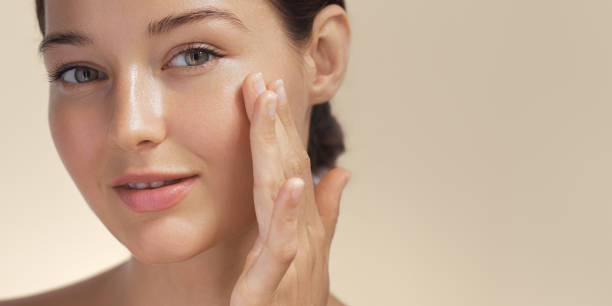Skin Fasting: The Minimalist Approach to Radiant Complexion
In a world inundated with multi-step skincare routines and an ever-expanding array of beauty products, a counterintuitive trend is quietly gaining momentum. Skin fasting, a practice that advocates for periodic breaks from skincare products, is challenging conventional wisdom in the beauty industry. This minimalist approach to skincare is not just a passing fad but a philosophy rooted in the belief that sometimes, less is more when it comes to achieving a healthy, radiant complexion. As consumers become increasingly conscious of their choices and seek simplicity in their routines, skin fasting offers a refreshing perspective on skincare that's worth exploring.

The fundamental idea behind skin fasting is that constant use of skincare products can disrupt the skin’s natural processes, leading to dependency and potentially weakening its inherent ability to maintain balance. By periodically abstaining from skincare products, proponents argue that the skin can reset and strengthen its natural protective mechanisms.
The Science Behind Skin Fasting
While the concept of skin fasting may seem counterintuitive to those accustomed to rigorous skincare regimens, there is some scientific basis to support its potential benefits. The skin is a complex organ with its own regulatory systems, including sebum production, cell turnover, and moisture retention. Overuse of skincare products, particularly those containing harsh ingredients, can potentially disrupt these natural processes.
Dr. Zoe Diana Draelos, a dermatologist and researcher, explains that the skin has a remarkable ability to maintain its own equilibrium. “The skin is a self-regulating organ with its own feedback mechanisms,” she notes. “Constant intervention with products can sometimes interfere with these natural processes, leading to issues like overproduction of sebum or increased sensitivity.”
Moreover, research has shown that the skin’s microbiome—the ecosystem of beneficial bacteria living on its surface—plays a crucial role in maintaining skin health. Excessive use of products, especially those with antimicrobial properties, can disrupt this delicate balance, potentially leading to skin issues.
Implementing Skin Fasting: Methods and Approaches
Skin fasting can be implemented in various ways, depending on individual skin types and concerns. Some practitioners advocate for complete abstinence from all skincare products for a set period, typically ranging from 12 hours to several days. Others recommend a more gradual approach, selectively eliminating products or simplifying routines over time.
One popular method is the “28-day skin fast,” which involves gradually reducing product use over four weeks. Week one starts with eliminating serums and treatments, week two removes moisturizers, week three cuts out cleansers, and the final week involves using only water to cleanse the skin. This gradual approach allows the skin to adjust slowly and can be less daunting for those hesitant to completely abandon their routines.
For those with specific skin concerns or conditions, a modified approach may be more appropriate. Dermatologist Dr. Whitney Bowe suggests a “skin cycling” method, which involves alternating between active ingredients and rest days to give the skin time to recover and reduce the risk of irritation.
Benefits and Potential Drawbacks
Proponents of skin fasting report numerous benefits, including improved skin texture, reduced sensitivity, and a more balanced complexion. By allowing the skin to regulate itself, some users experience a reduction in excess oil production and fewer breakouts. Additionally, taking a break from products can help identify which items in a routine are truly necessary and which may be causing irritation or other issues.
However, it’s important to note that skin fasting may not be suitable for everyone. Those with chronic skin conditions such as eczema or severe acne may need to continue with prescribed treatments. Additionally, sun protection remains crucial even during a skin fast, as UV damage can have long-lasting effects on skin health.
Dr. Joshua Zeichner, Director of Cosmetic and Clinical Research in Dermatology at Mount Sinai Hospital, cautions, “While giving your skin a break can be beneficial, it’s important to maintain basic care, especially cleansing and sun protection. Complete abstinence from all products may not be necessary or advisable for everyone.”
The Impact on the Beauty Industry
The rise of skin fasting presents both challenges and opportunities for the beauty industry. On one hand, it challenges the conventional wisdom that more products lead to better results, potentially impacting sales of extensive skincare lines. On the other hand, it opens up opportunities for brands to develop minimalist, multifunctional products that align with the skin fasting philosophy.
Several brands have already begun to capitalize on this trend, creating “skin fasting-friendly” products that focus on gentle, non-disruptive formulations. These products often emphasize natural ingredients and minimal preservatives, appealing to consumers seeking a more streamlined approach to skincare.
The trend also aligns with growing consumer interest in sustainability and minimalism. By encouraging reduced product use, skin fasting could contribute to less waste and a smaller environmental footprint in the beauty industry.
The Future of Skin Fasting
As interest in skin fasting grows, researchers are beginning to explore its long-term effects and potential applications in treating various skin conditions. Some dermatologists are incorporating modified fasting protocols into their treatment plans, particularly for patients with sensitive or reactive skin.
The concept is also influencing broader discussions about skincare education and consumer habits. There’s a growing emphasis on understanding individual skin needs and developing personalized routines rather than following one-size-fits-all approaches.
As we move forward, skin fasting may evolve from a niche trend to a mainstream approach in skincare. Its emphasis on simplicity and skin self-regulation aligns well with broader wellness trends that prioritize natural processes and minimal intervention. Whether embraced fully or adapted into a more moderate approach, the principles of skin fasting are likely to continue influencing the beauty industry and consumer behaviors in the years to come.





